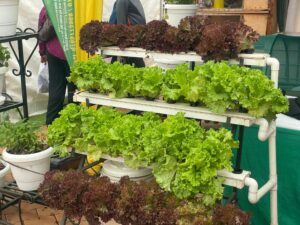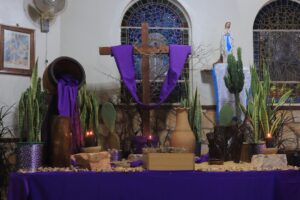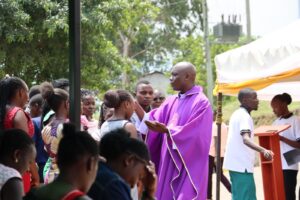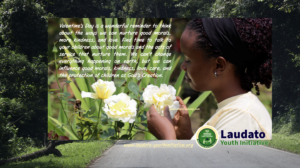By Nicholet Zabuna
In Laudato Si, Pope Francis calls humanity to an ecological conversion, urging us to recognize our interconnectedness with creation and embrace our responsibility to care for our common home. One thing that has become a great concern is the continued desertification of the land. Pope Francis says,
“The external desert is growing because our internal desert is vast and growing.”
We, as people, are failing to care for the earth. Among the most pressing aspects of this care is the need to nurture the natural world within urban environments, particularly through tree planting and urban forest development. Planting trees will therefore help to make our cities more livable and incorporate the aspect of sustainability.
Trees are a gift of creation which offer ecological, social, and economic benefits that contribute much to the well-being of the world and our homes, even those in cities. Trees play a major role in climate because they absorb carbon dioxide, produce oxygen, and mitigate the impacts of climate change by cooling urban areas, reducing energy consumption, and managing stormwater. This clearly shows that they help to purify the air and take up the excess water that would have caused flooding. In cities plagued by rising temperatures, urban forests provide a natural solution to the heat island effect. Trees also contribute to biodiversity, offering habitats for birds, insects, and small mammals, even in densely populated areas. Integrating nature into urban life helps to bring about sustainability, which in then reminds us of our role to coexist harmoniously with the ecosystems that sustain us.

When we as people understand the importance of tree planting, we then help to solve the issues of inequalities, particularly in marginalized communities that often lack sufficient green spaces, especially in the cities. Having gone around some urban cities, I noticed that there are some parts that lack any form of green. Planting trees in these underserved neighborhoods improves air quality, enhances mental and physical health, and provides spaces for recreation and connection. The peace one gets when walking in nature helps to reduce stress levels.
Pope Francis highlights to us that environmental degradation affects the poor and vulnerable. Urban forest development would be a good step to help reduce the effects of climate change and the suffering of the poor since it is them that suffer most of the effects climate change. Not forgetting, the trees would also make our communities more beautiful. These trees will also provide shelter for other animals in our environment such as birds.
Therefore, City planners, policymakers, and community members must work together to promote tree planting and long-term maintenance of them. Each tree planted saves the environment much more than we can imagine. Take for example, the air and the breeze in a forested area feels fresher and cooler as compared to the area and breeze in most of the cities. We all need to take the initiative to plant trees to save our environment.
Laudato Si’ reminds us that the ecological crisis is also a crisis of the human spirit, born from a disconnection from the Creator and His creation. Planting a tree is an act of hope and belief that is going to bring about a better, greener, and more harmonious world. As people created by God and put in charge of all creation, we are therefore called to embrace this duty with urgency and dedication. By planting trees and nurturing urban forests, we contribute to cities that reflect the values of justice, peace, and care for our neighbors and Mother Earth. If we do so, we respond to Pope Francis’s call to protect our common home, creating spaces where both humanity and nature can thrive together.














